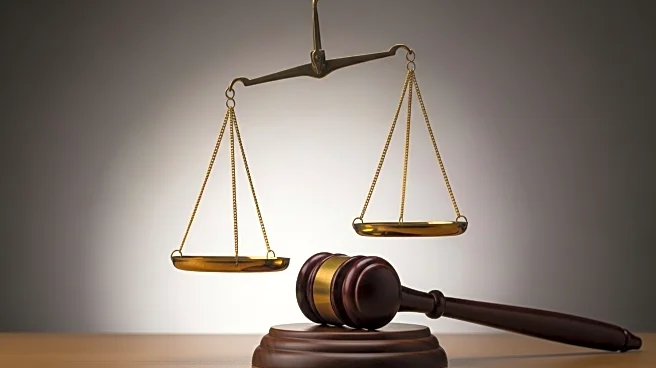What is the story about?
What's Happening?
The FBI has terminated several agents who were photographed kneeling during a racial justice protest in Washington following the 2020 death of George Floyd. The agents were initially reassigned but have since been fired, according to sources familiar with the matter. The exact number of agents dismissed is unclear, but reports suggest it could be around 20. The kneeling was seen by some as a de-escalation tactic during the protests, but it angered others within the FBI. The FBI Agents Association has condemned the firings as unlawful, citing violations of the agents' constitutional and legal rights. The association has called for a congressional investigation into the actions of FBI Director Kash Patel, who is accused of disregarding legal protections for bureau employees.
Why It's Important?
The firings highlight ongoing tensions within the FBI regarding personnel decisions and the agency's approach to handling internal dissent. The dismissal of agents for their actions during a protest raises questions about the balance between personal expression and professional conduct within federal agencies. The situation could impact morale within the FBI, as it follows a series of high-profile firings that have already contributed to declining morale. The legal implications of firing agents for their protest actions could lead to further scrutiny and potential legal challenges, affecting the agency's operations and public perception.
What's Next?
The FBI Agents Association's call for a congressional investigation may lead to further examination of the agency's personnel practices and the legal rights of its employees. If Congress decides to investigate, it could result in hearings and potential legislative action to address the concerns raised by the firings. The situation may also prompt discussions about the role of personal expression within federal agencies and the legal protections afforded to employees who engage in protest activities.
Beyond the Headlines
The firings could have broader implications for how federal agencies handle employee participation in social and political movements. The case may set a precedent for how similar situations are addressed in the future, influencing policies on employee conduct during protests. Additionally, the legal challenges arising from the firings could lead to changes in how agencies interpret and apply constitutional protections for employees.














